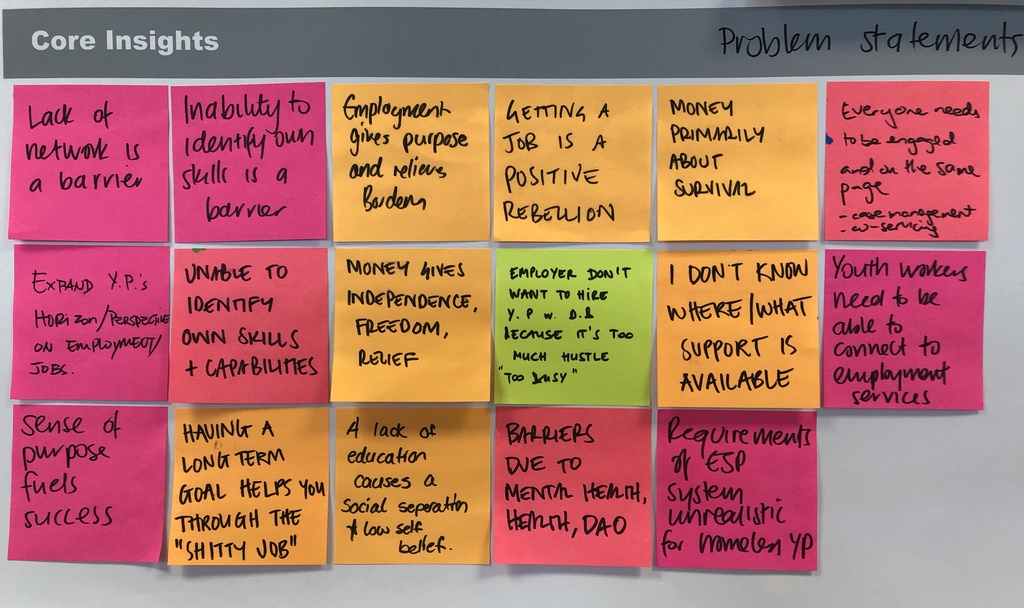"Every problem is an opportunity for design” - IDEO.org
A How Might We (HMW) can be a statement or question. They relate to key problem areas that are experienced by the cohort you are designing for. These problem areas arise from the deep insights gathered through interactions and empathy, and any particular themes and patterns identified.
HMW statements are designed to prompt creativity and provoke unique but meaningful thoughts and ideas. HMWs are nuanced and insightful. They do not elude to a specific solution, but rather, set frames that spark innovative thinking.
The D4IF team has just come out of our sprint week - a week where we analysed the past five months of insights data gathered from homeless young people and service providers in the sector.
We have come up with HMWs, and we hope these help you with creating your entries!
How Might We: Create quick, fun and flexible job opportunities that are low risk for employers and job participants.
How Might We: Leverage rejection for future success
How Might We: Create a “foot in the door” advantage for homeless young people without creating stigma.
As HMWs are anchored to core singiths, they relate to the “Struggles” and “Motivators” listed in the challenge Overview, as well as the “Core Insights” detailed below.
- A young person’s ability to pursue work can be volatile. For example, anxiety levels and fear of rejection can significantly inhibit a young person in wanting to engage in job seeking.
- If/when a young person feels able to engage in work activities, this window of time can be a few days, or up to a few weeks. It can be complex to line up a work activity within this timeframe.
- We all experience fear of rejection to an extent. However, fear of rejection for a homeless young person has roots in minimal/nil network or support structures and significantly traumatic upbringings. Many homeless young people have had histories of 50+ foster care placements just in their teenage years.
- What does failure mean, and how can we create a safe and supportive way for failure and rejection to occur as a life lesson for homeless young people?
- For many of us, the first jobs in life came through established connections. Homeless young people do not necessarily have this network of friends or family to help them take their first step towards employment.

